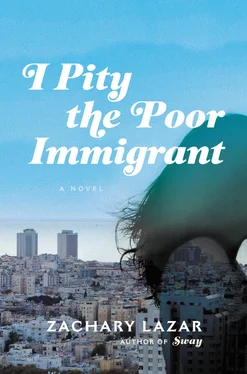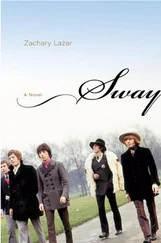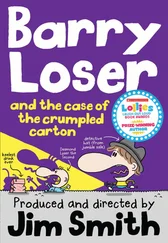There was a boom and then a silence. A tight connection across all that space and then a snapping of that connection. A boom and then a body slumped over in a chair. Something heavy slung from bones.
He felt the explosion through the barrel, the double action in the chamber, the grip jerking upward. He felt it resonate in his hand, the ringing soreness in his shoulder.
There was a dark smear on his father’s undershirt, an oblong stain partly covered by his head. There was the stillness of his father’s hands. There were the shoelaces tied to his glasses, cutting a swath through the nearly bald skin at the back of his head.

For two thousand years, the Jews were not a race but a scattering, a dispersion. A multinational culture. It’s what has always made us hated and feared, the perversity of having a culture without a land. No land that embodies the culture and is something to fight for, to die for. Only a weak, clever people could have devised such a culture. That was the way we were thought of for two thousand years.
— Reb Zvi Netanel,2008
Fanatics, extremists. The kind of people Eliav had himself accused when I’d talked to him back in 2009. On the evening of December 22, 2008, two groups of young men abducted first Bellen and then Eliav, Bellen outside his apartment building on Levinsky Street, Eliav outside a 24-hour restaurant on the south side of Tel Aviv. They drove them separately to an abandoned storage facility in Bat Yam, where they tortured Bellen for three hours, then brought in Eliav. On July 27, 2012, the Judea and Samaria Division of the Israeli National Police arrested a twenty-two-year-old man named Sami Orlov, who was suspected of conspiring to explode a mosque in East Jerusalem. During his interrogation, Orlov confessed to his role in the Bellen murder three and a half years earlier. Sami Orlov is a follower of a rabbi named Zvi Netanel, who lives on an illegal outpost in the West Bank near Hebron. Netanel denies any connection to Sami Orlov or to Bellen’s murder. But the goal of Netanel’s movement, according to Netanel himself, is the restoration of a Jewish monarchy throughout the territory of the ancient one, a new Kingdom of David.
It was Voss who told me the story. When he told me, I reminded him of Bellen’s poem “Kid Bethlehem”: God is the small hard stone / in the boy’s sling.
“They’re the fringe,” Voss said. “Crazy people.”
“It’s not just Israel,” I said. “That isn’t what I meant. That’s never been what I’ve meant.”
The question of course was whether I was going to go back to Israel to do the assignment. The Sami Orlov assignment. It was July of 2012 and I had just filed the James Holmes assignment, the one about the psychotic student in Aurora, Colorado, who’d gone into a movie theater with a private arsenal and full body armor during a Batman premiere and shot seventy people, killing twelve of them. I was tired of such assignments, tired of such personalities. I told Voss about the strange vision I’d had in Jerusalem of the Hilltop Youth, those boys in their cargo pants marching David Bellen across the rocky field. How my fascination now seemed to me more than just a fascination. How it seemed more like an identification. How I somehow saw a part of myself not only in Bellen but in those boys — in their anger, in their thirst for extremes. How it seemed to me that someone else could perfectly well do the Sami Orlov story and I could be free of it.
As for Voss, he’s coming to New York in a few days. Maybe we’ll take a walk through my old neighborhood on the Upper East Side, his hand in mine, our backs to the traffic on Lexington as we leave the subway and pass the Starbucks, the shoe repair, the wine shop, the Korean deli with its newspapers and sunflowers. We’ll go to the temple on 79th Street where I first met my teacher, Gila, then a few blocks down and across the street to my father’s old antiques shop, its green awnings now replaced by the blue awnings of a national vitamin and health-food chain. I’ll show him Gila’s old apartment on 75th Street, the signs for H. KOTZ MEDICAL SUPPLIES and SYLVIE’S EUROPEAN ALTERATIONS still there, the block still like a vestige of some other time — my grandparents’ time, Meyer Lansky’s time, the block like an echo of the Brownsville slum where all their American stories began. Then I’ll take Voss to the safe white building I grew up in on East End Avenue, its doorman and its boxwoods and its dwarf cherry trees, then finally we’ll take a cab back across town to my current, equally safe life in Chelsea.
If I go back to Israel, I tell Voss, it won’t be to do the Sami Orlov story.
If I go back, it won’t even be for Voss.
If I go back to Israel, it will have to be for reasons of my own.
Most of the quotations from the Bible come from Robert Alter’s The David Story: A Translation with Commentary of 1 and 2 Samuel . As a source on organized crime in Israel, Douglas Century’s series “Holy Land Gangland” in the online magazine Tablet was of great value. My experience in Israel was enormously enhanced by the warm welcome given me by Maya Roman, Ellen Spolsky, and Marcela Sulak, among others. For their support while writing this book, I would like to thank the John Simon Guggenheim Memorial Foundation and Princeton University for its Hodder Fellowship. For their help and advice along the way, I would like to thank John Dalton, Jameson Ellis, Joshua Ferris, Mary Jo Bang, Peter Ho Davies, Marshall Klimasewiski, Edmund White, Bill Clegg, Pat Strachan, Victoria Matsui, and most of all my wife, Sarah.
Zachary Lazar is the author of three previous books, including the novel Sway, chosen as a Best Book of 2008 by the Los Angeles Times, Rolling Stone, Publishers Weekly, and Newsday, and the memoir Evening’s Empire: The Story of My Father’s Murder, a Chicago Tribune Best Book of 2009. Lazar is the recipient of a Guggenheim Fellowship and the Hodder Fellowship at Princeton University. He lives in New Orleans, where he is on the creative writing faculty at Tulane University.













